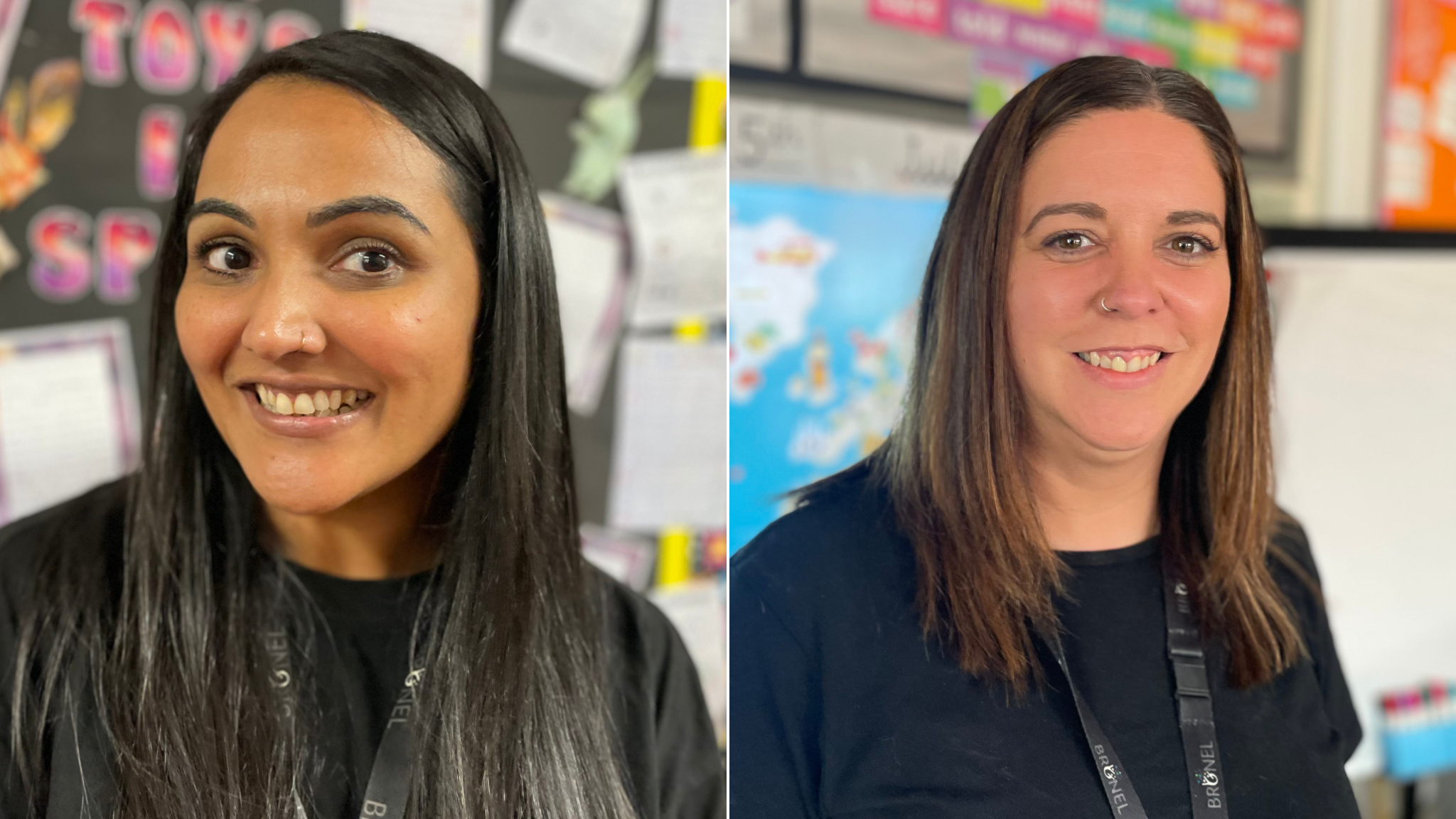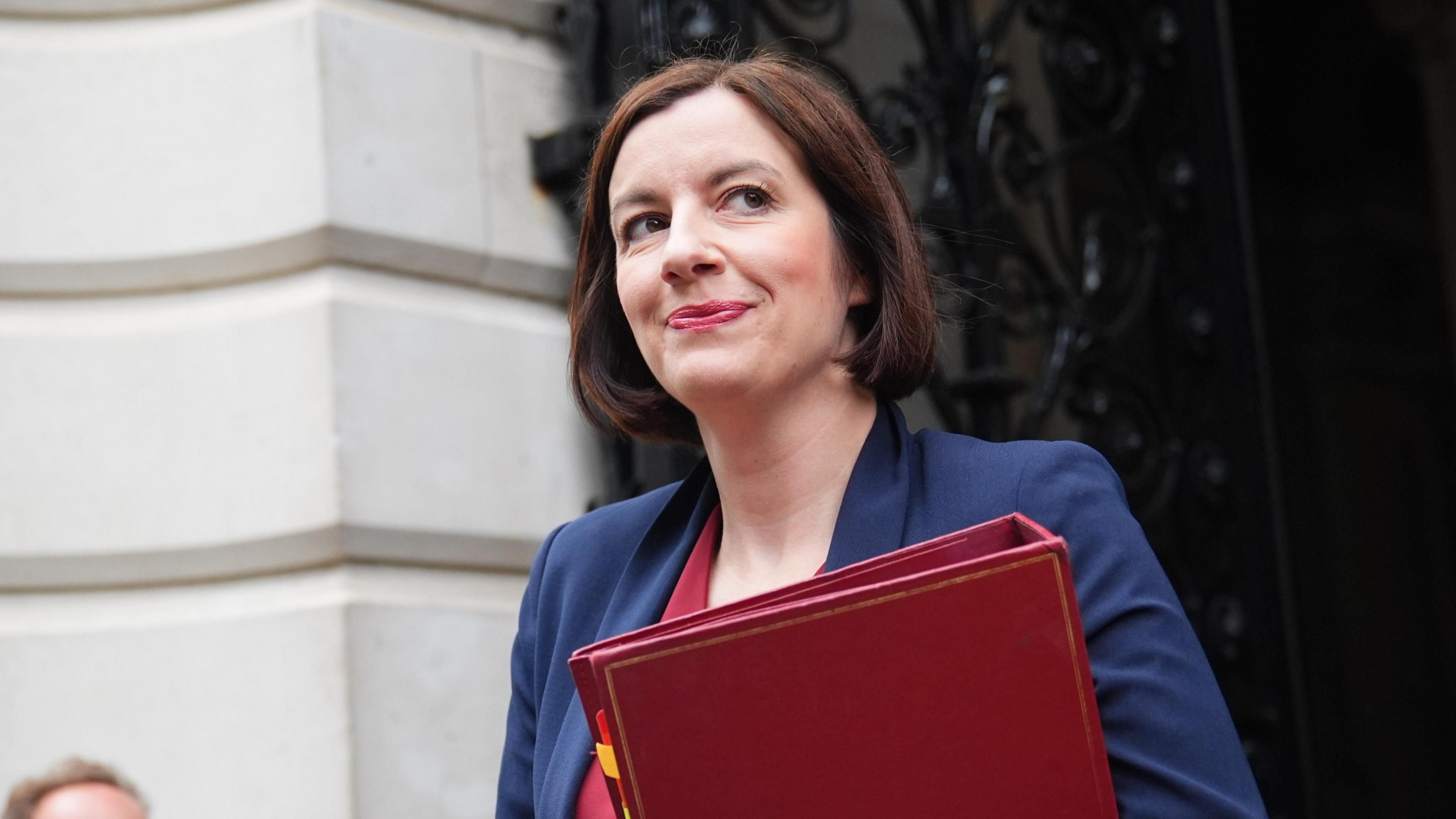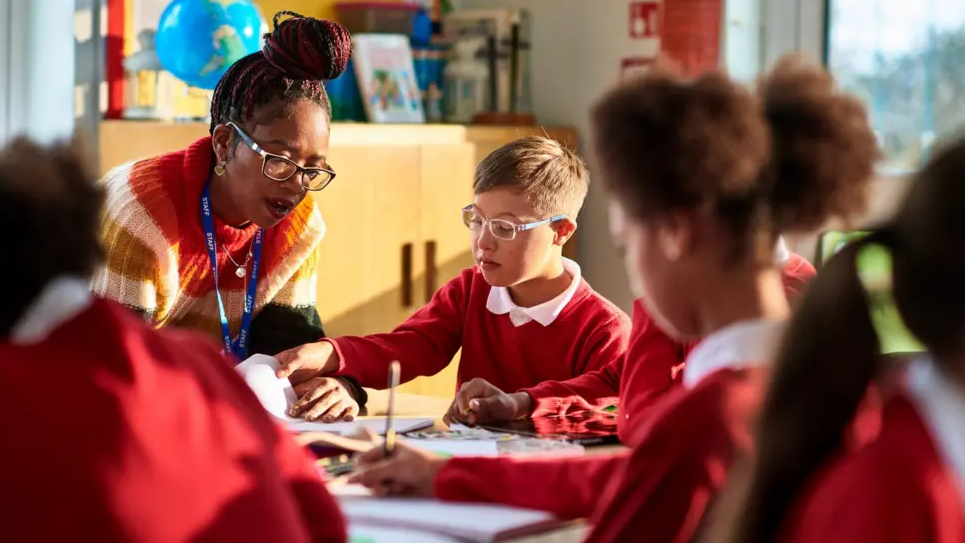Paralympian's shock at closure of disability unit

Paralympian Ben Fox, who was born with Vater Syndrome, attended Westlea Primary School in Swindon
- Published
A silver medal-winning Paralympian has said he is shocked by the closure of a disability unit at his former school.
Ben Fox, from Swindon, was part of the wheelchair basketball team that were runners-up at Paris 2024. He used to attend Westlea Primary School in the town which has had a Special Resource Provision (SRP) for more than 20 years.
The unit was created to help students with disabilities attend mainstream school but Swindon Borough Council (SBC) said that more children are now able to be supported in local primary schools, meaning the SRP is no longer needed.
Mr Fox said he was sad to see it go as it helped him accept his disability from a young age and become who he is today.

Mr Fox credits the unit at Westlea Primary School with fostering his sporting career
Mr Fox, 29, who attended the school between 1999 - 2006, represented Great Britain in wheelchair basketball at the Tokyo 2020 and Paris 2024 Paralympic Games.
He also carried the Olympic Torch for the London Olympic Games as a 16-year-old in 2012.
Mr Fox, who was born with Vater Syndrome, said he was shocked and saddened by the SRP's closure.
"They said to me 'look, you're disabled. It's completely fine. It's completely normal'", he said.
"It allowed me to just be a student who needed extra help to do certain things. I wasn't this special child."
The SRP aimed to give disabled students the same educational experience as their mainstream peers with staff trained to assist with other needs like eating and using the toilet.
Students could also enjoy sports days and residential activity weeks.
"I'm very fortunate that out of one of those sports days, through a bit of luck and a bit of hard work, I'm now able to have a career out of sport," Mr Fox said.
He believes the decision to close the SRP is a step back.
"This is probably a decision that has been made by someone who has never experienced this in their life. Someone who doesn't value how important they (SRPs) are," Mr Fox added.

Co-headteachers Ria Chitroda (left) and Alex Moore said the school would still accept students with disabilities
Ria Chitroda and Alex Moore, co-headteachers of Westlea Primary School, said nothing would change and that they will still accept students with disabilities.
"I think there is a misconception, that because the SRP is closing, that all of a sudden we're going to get rid of the current children in the SRP - that's not going to happen," Ms Moore said.
Ms Chitroda added: "We still have the space. We still have the hoists, we still have the toilets that are accessible, so if we had a student who was in a wheelchair, we would be able to meet their needs."

Oscar, pictured with his mum Alex, has a rare form of muscular dystrophy and requires 24-hour care
Meanwhile, Robert Le Kyng Primary School, in Old Town, is also closing its SRP.
Alex Moulding and her son Oscar, 17, are not happy to see it go.
"Having the unit made us feel less isolated - we were part of a gang and that was vital, especially in the early years when it can be quite scary for parents," Ms Moulding said.
She said the SRP felt like family, and staff supported her "in ways that maybe no one else could".
"I feel they had the perfect model at Robert Le Kyng," Ms Moulding said.
"Having the unit meant that everything 'disability' was under the expert watch of a specialist team."
Oscar said he enjoyed his time at the school.
He added: "Going to a mainstream school with the SRP allowed me to have a normal life.
"If I had gone to a special school my mental health would have suffered because I wouldn't have been with my peers.
"It also allowed me to go to the same school as my brother, which was amazing for both of us."
Data from SBC, obtained through a Freedom of Information request, shows that the money it has spent on Special Educational Needs and Disabilities (SEND) has increased by more than £3.8m since 2015.
The council said it did not have data detailing the number of SEND students starting at primary school in the same period.
'Continue to support'
The council said there had been a drop in pupils requesting a place in a SRP and more children wanted spaces in mainstream schools that were "able meet their needs".
A spokesperson added: "This has led to discussions taking place between the council and the Trusts who operate Westlea and Robert Le Kyng Primary schools.
"The schools then followed the process for closing the SRP as required by the Department for Education, which included consultation with parents and other stakeholders. This was then agreed by the DfE.
"We will continue to support the children and young people of Swindon with their educational needs and develop other appropriate provision for our young people"
Get in touch
Tell us which stories we should cover in Wiltshire
Follow BBC Wiltshire on Facebook, external, X, external and Instagram, external. Send your story ideas to us on email or via WhatsApp on 0800 313 4630.
Related topics
Stories similar to this
- Published13 August

- Published12 August
